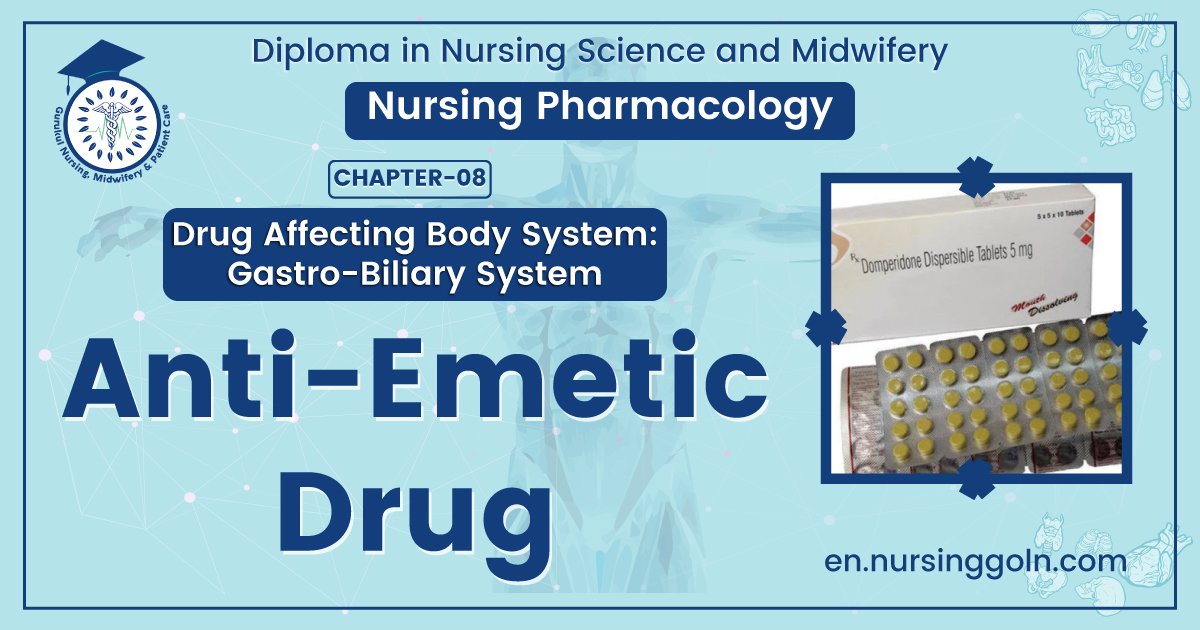Anti-Emetics Drugs – This book covers the entire syllabus of “Pharmacology” prescribed by BNMC- for diploma in nursing science & midwifery students. We tried to accommodate the latest information and topics. This book is an examination setup according to the teachers’ lectures and examination questions.
At the end of the book, previous questions are given. We hope in touch with the book students’ knowledge will be upgraded and flourish. The unique way of presentation may make your reading of the book a pleasurable experience.
Anti-Emetics Drugs
Drugs that are used specially to prevent or relieve nausea and vomiting, or anti-emetics are the drugs used in the symptomatic treatment of vomiting which is persistent, ineffective, unless or troublesome.

Classification of anti-emetics:
A. Central anti-emetics
a. Specific:
- Prochlorperazine (stemetil)
- Chlorpromazine.
- Triflupronrazine.
- Perphenazine.
b. Non-specific:
- Barbiturates
- Antihistamines: Theolate. Promethazine HCI
B. Local anti-emetics:
- Bismuth carbonate.
- Calcium carbonate
- Atropine
- Therapeutic use of Anti-emetics:
1. As pre-anaesthetic medication
2. Motion sickness
3. Drug induced vomiting
4. Morning sickness
5. Radiation sickness

Drug of choice in motion sickness
1. Promethazine theocolate
2. Scopolamine
3. Meclezine
4. Prochlorperazine
5. Maxoione
Metoclopramide
It is a dopamine antagonist that stimulates the motility of upper gastrointestinal tract.
Indication of metoclopramide:
1. As an anti-emetic (widely used)
2. Prophylaxis of nausea & vomiting during chemotherapy.
3. Diabetic gastric stasis.
4. To facilitate small bowel intubation & radiological exam
Contraindication: Phaechromocytoma
Adverse effects of anti-emetics:
1. Drowsiness.
2. Anti-muscarinic effects (atropine like side effects):
- Dry mouth
- Blurred vision
- Constipation
- Urinary retention
3. Extrapyramidal dystonia (metoclopramide).
4. Gynaecomastia, galactorrhoea (D2 receptor antagonist).
5. CNS disturbances:
- Somnolence
- Confusion
- Dysphoria
- Euphoria
- Dizziness
- psychosis
